Significantly Reduce All Forms of Violence and Related Death Rates Everywhere
What does Target 16.1 mean for businesses?
Target 16.1 calls for the reduction of physical, psychological and sexual violence and deaths arising from violent conflict and intentional homicide, among other factors. During the COVID-19 pandemic, many major cities have seen a rise in homicide rates and cases of domestic violence have risen exponentially around the world. Moreover, there has been a sharp rise in the levels of violent conflict as civil wars, social unrest, terrorism and white nationalism have become increasingly prevalent. While most incidents of violence may be driven by non-state actors, there are many cases of state-sanctioned violence to which businesses should also pay close attention. Such situations create significant trauma and turmoil in the world, which is felt by businesses — whether as employers or providers of goods and services — and the societies they serve.
Peace is in decline as violence and unrest increases around the world:
- Levels of peace globally declined in 9 of the last 12 years (Global Peace Index 2020)
- Levels of civil unrest — including anti-Government demonstrations, riots and strikes in general — has risen significantly in the last decade with more than 60 countries experiencing at least one violent protest in 2019 (Global Peace Index 2020)
- The impact of violence on the global economy is equal to 10.5 per cent of global gross domestic product (GDP) or $1,895 per person (Economic Value of Peace 2021)
State fragility is widening with countries unable to manage increased economic, environmental, political, security and social risks:
- 23 per cent of the world’s population live in fragile contexts (OECD States of Fragility 2020)
- In 2019, the number of people fleeing war, persecution and conflict exceeded 79.5 million, the highest level ever recorded (UNHCR)
Notably for businesses is the concept of positive peace which is defined by the Institute for Economics and Peace (IEP) as a condition affirmatively consisting of the “attitudes, institutions and structures that create and sustain peaceful societies”. These include many of the tenets of SDG 16 and illustrate the numerous overlapping principles, structures and themes of good governance embodied in the Goal. The elements of positive peace include:
- Well-functioning Government
- Acceptance of the rights of others
- Good relations with neighbours
- Free flow of information
- High levels of human capital
- Low levels of corruption
- Sound business environment
- Equitable distribution of resources
These attitudes, institutions and structures reinforce, among other things, a secure and stable business environment and are strongest in places where businesses are able to thrive. Countries with high levels of peace generally perform better on a range of economic factors, have lower volatility and tend to experience higher levels of GDP growth at an average of around 2.8 per cent per annum.
Fragile, violent and conflict settings
While all the targets of SDG 16 are critical to the goal of advancing peaceful, just and inclusive societies, the reduction of all forms of violence has particular relevance in fragile, violent and conflict-affected settings that face multidimensional and complex risks. In these operating environments, business engagement on SDG 16 falls along a spectrum: from risk management and avoiding negative effects to supporting peace and addressing key drivers of conflict and violence. Special consideration must be paid to implementing conflict-sensitive business practices and paying heightened attention to the Ten Principles of the UN Global Compact as outlined in the Guidance on Responsible Business and Investors in High-Risk Areas to ensure that responsible businesses do not unintentionally widen inequalities and drive conflict.
How should businesses implement Target 16.1?
Governments are chiefly responsible for establishing the attitudes, institutions and structures that foster peaceful societies. This responsibility includes preventing various forms of violence and violent conflict and bringing to justice those responsible when such violence occurs. Yet, businesses have an important role to play in advancing Target 16.1 both internally within their organizations and externally in their operating environments. To be sure, both the UN Guiding Principles on Business and Human Rights (UNGPs) and the Voluntary Principles on Security and Human Rights (Voluntary Principles) establish that businesses have an express and inherent responsibility to take all practical and reasonable steps to “do no harm” to any persons, including to not cause or contribute harm through their own activities. Both the UNGPs and the Voluntary Principles also establish that businesses should conduct due diligence and exercise due care to avoid being directly linked to the harm caused through their business relationships — the UNGPs for all businesses across industries and the Voluntary Principles primarily for oil and mining extractive operations in proximity to conflict zones. Moreover, businesses can play a critical role in “making a positive contribution” not only by providing employment opportunities and generating economic development but also by supporting efforts to reduce the drivers and, in turn, levels of violence in the communities (including domestic violence) where they operate. Such drivers of violence that businesses can address include reducing inequalities and realizing fundamental freedoms (Targets 16.7, 16.10 and 16.B), strengthening access to justice (Targets 16.3), supporting accountable governance (Targets 16.4, 16.5 and 16.6), providing opportunities to promote social cohesion (Targets 16.6 and 16.7) and participating in negotiations and peace processes (Targets 16.6, 16.7 and 16.8), among others.
Here are some ways businesses can take action
Culture
Adopt a zero-tolerance approach from the top and throughout the business relating to all forms of workplace violence (e.g. bullying, sexual harassment, occupational hazards) and all forms of violence outside of the organization (e.g. through any arrangements, conduct or relationships with third parties).
Policies and processes
Establish standards that ensure employees and other adversely affected parties (including within the supply chain) are adequately protected against any harm that the business may directly or indirectly cause or contribute to, including heightened human rights risk assessment, due diligence and auditing. Promote inclusive hiring and employment practices that support workforce diversity, equity and inclusion.
Education and training
Develop and ensure mandatory training of management and all employees explaining the possible types of violence within the workplace and in the communities in which they operate — particularly in the context of business risk of influence or involvement. Training modules should reinforce a zero-tolerance approach, highlight hotlines/grievance mechanisms available and emphasize the consequences for participation in such conduct.
Hotlines and grievance mechanisms
Develop, implement, monitor and adequately resource hotlines and internal grievance mechanisms, through which employees and external parties can report concerns regarding business conduct that fuels violence and/or undermines peace. Ensure that all grievances are adequately investigated and responded to appropriately. Any relevant policies should include a provision on protection against retaliation for reporting concerns or registering grievances.
Protection of at-risk employees including trade unionists
Ensure sufficient security protection for certain employees (such as trade unionists) whose security may be at risk in conflict zones or other high-risk contexts.
Contractual relationships
Employ terms that commit the other party to not doing business with any supplier that is participating in, funding or profiting from armed conflict and/or mass atrocity violence, either directly or indirectly through next-tier suppliers. Suppliers will also be required to promptly inform on imminent or ongoing armed conflicts or mass atrocity violence where the company does business. In locations recovering from past armed conflict or mass atrocity violence, suppliers shall have a plan in place to promote the use of local products and/or workforce consistent with fair labour practices.
Decent work and living wage
Provide decent work and a living wage to existing and prospective employees. Such minimum standards can promote economic opportunity and stability and promote prosperity, particularly in conditions where this otherwise does not exist.
Risk management
Comply with industry-specific international standards and commitments such as the Kimberly Process and the Extractive Industries Transparency Initiative that address the nexus of conflict, corruption and governance. Adopt a systems mindset and undertake mapping to identify political institutions, civil society leaders and other stakeholders in complex local contexts.
Board/management oversight, culture, strategies, policies, operations and relationships
Advocacy and commitment
Lead, promote and support adherence to global and industry standards that serve to foster the development of peaceful societies including, but not limited to, the UNGPs, the Ten Principles and the Voluntary Principles.
Work placement programmes
Collaborate with civil society organizations and local/national governments to develop career pathways and work placement opportunities for youth and other vulnerable populations to help alleviate civil or social unrest and/or reduce the risk of being drawn/forced into a violent conflict situation.
Influence
Provide incentives for local/national governments that prioritize peacebuilding activities through economic opportunities such as foreign direct investment, development of local industries and job creation if/when appropriate and with consideration for local dynamics. Special consideration should be paid to avoid reinforcement of existing power structures or structural inequalities as these are major conflict drivers that are often impacted by commercial or investment activities.
Capacity building
Support the development or strengthening of accountable, effective and inclusive institutions that foster a successful transition to a post-conflict society, including heightened attention to access to remedy and transitional justice.
Dialogue
Create space where people from different cultures and religions meet, discuss and cooperate to promote intercultural and interreligious understanding.
Collective action
Participate in Global Compact Local Networks or other business/industry associations or chamber activities that seek to empower businesses of all sizes to adopt conflict-sensitive practices and/or reduce violence, including collective action to build resilience to manmade disasters. Given the inherent sensitives, particularly in conflict-affected or high-risk situations, collective action is often the most practical way to support communities near conflict zones or otherwise exposed to violence.
Institutions, laws and systems at the international, national and municipal levels
Here are some ways businesses are taking action
-
A Statement by Concerned Businesses Operating in Myanmar
Further to the United Nations response to the military coup in Myanmar, the business community was urged to speak out against the attack on democratic processes and human rights violations, including the efforts to limit access to the internet as well as restrict freedom of assembly and expression and the killing of protestors. Businesses issued statements raising concerns regarding these actions. Their statements made clear that “we inhabit a ‘shared space' with the people of Myanmar, including civil society organizations, in which we all benefit from respect for human rights, democracy and fundamental freedoms — including freedom of expression and association — and the rule of law”. (Source)
- Alliance to Combat Anti-Asian Violence
Historically, the legal system has marginalized low-income and under-represented Asian Americans who have not been afforded due process, let alone the basic respect and attention their cases deserve. Victims often lack access to legal remedies and support because of language and cultural barriers, among other inhibiting factors. Victims of anti-Asian hate need culturally responsive advocates and real solutions. In response to heightened attacks on the Asian American community, a group of Fortune 1000 General Counsel and over 40 law firms announced the creation of The Alliance for Asian American Justice (The Alliance), a national pro bono initiative committed to standing up for victims and preventing future acts of anti-Asian hate. (Source)
- Business Response to the Murder of Jamal Khashoggi
Following the brutal murder of journalist Jamal Khashoggi in the Saudi Arabian consulate in Istanbul, many business leaders declined to attend the annual Future Investment Initiative, known as “Davos in the Desert”, given questions about the circumstances surrounding Khashoggi’s death. (Source)
- Business Response to the United States Capitol Riots
In the days following the insurrection at the United States Capitol on 6 January 2021, Chief Executive Officers from across the business community issued statements condemning the violence and defending democratic governance and the rule of law in the United States. In addition to such statements as well as to grave concerns expressed by the United Nations and others, many businesses announced changes to their political contribution policies, with certain companies refusing to contribute to specific candidates who opposed the certification of the President-elect while others paused all political contributions. The shock of the events at the Capitol — and the threat posed to the United States electoral system — sparked an unprecedented response from the business community in defence of democratic institutions and processes. The business community previously made statements before the presidential election supporting the integrity of the electoral process and the peaceful transfer of power. (Source)
- Cadmos Peace Investment Fund
Asset managers De Pury Pictet Turrettini (PPT) launched the Cadmos Peace Investment Fund with the PeaceNexus Foundation in 2018 to invest in multinational businesses with large economic footprints in fragile countries. Of these businesses, the Fund invests in companies that have a net positive impact in peacebuilding (as measured by the PeaceNexus Peacebuilding Business Index). The investment is supported by stakeholder engagement to raise awareness of the peacebuilding criteria that are included in the Index and that extend beyond standard ESG measures. (Source)
- Connecting Victims of Abuse Including Domestic Violence to Advisory and Support Services
Created by the Vodafone Foundation to connect victims of abuse including domestic violence to advisory and support services. Bright Sky was created in partnership with the United Kingdom-based crisis support charity Hestia. It enables users to locate their nearest support centre by their current location or by a specific area or postal code. A short questionnaire also helps users assess the safety of a relationship and provides information about different forms of abuse, the types of support available, steps to consider in leaving an abusive relationship and how to help a friend affected by domestic abuse. The app is also designed to log incidents of domestic abuse without any content being saved on the device itself. It enables users to record incidents in a secure digital journal using a text, audio, video or photo function. Evidence collated through this function will enable police to intervene and can help secure prosecutions. During COVID-19, the Bright Sky app has seen a 47 per cent increase in weekly downloads. (Source)
- Employer Action on Domestic Violence
The sheer human impact of domestic and family violence in the community compels us all to take action on all fronts. Workplaces are proving to be essential partners in this effort. Employers are now stepping up with action on the confronting issue of employees who may use domestic and family violence. Male Champions of Change and other partners developed this guidance to help organizations balance accountability and support for these employees while ensuring the safety of those affected. (Source)
- Ending the Silence on Domestic Violence
In response to the significant rise in domestic violence cases resulting from extended lockdowns during the COVID-19 pandemic, Unilever has made its Global Domestic Violence and Abuse Policy available to other employers to help businesses that do not have one put measures in place to support employees and customers. (Source)
- Engaging Businesses in Building Resilience to Disaster
The Connecting Business initiative (CBi) engages the business community strategically before, during and after emergencies, including conflict, to increase the scale and effectiveness of risk reduction, response and recovery. Through 17 private sector networks, this initiative reaches 4,100 member companies and has access to more than 40,000 micro-,small- and medium-sized enterprises. (Source)
- Joint Statement on Policing and Respect for Human Rights
Released by corporate and non-governmental organization members of the Voluntary Principles on Security and Human Rights Initiative during the focus on police brutality in the wake of the killing of George Floyd in May 2020, the Joint Statement draws on two decades of the Initiative’s global experience with integrating human rights safeguards into security arrangements. It highlights the importance of improving the human rights performance of public and private security organizations. Moreover, it outlines relevant principles and best practices including periodic risk assessments by security providers, effective community engagement including with women and vulnerable groups, regular training on de-escalation techniques and human rights compliance as well as accountability in cases of human rights violations. (Source)
- One in Three Women
One in Three Women™ in the world will be raped, beaten, sexually coerced, trafficked or otherwise abused in her lifetime. This global campaign seeks to raise awareness of violence against women; create a global perspective; be a global voice and increase action and community mobilization against violence against women; and support programmes, organizations and communities working to help victims and survivors. L’Oréal, as a participating member of the European network, conducted a survey on the impact of such violence on people’s daily work. Some 40,000 employees from six companies in six countries were interviewed. The survey enabled the network to measure the impact of this violence on the victim and on his or her team, in terms of absenteeism and effectiveness at work. (Source)
- Protection and Support Measures for Working Women
In addition to supporting the Spanish Ministry of Health, Social Services and Equality's ‘There Is a Way Out of Gender-Based Violence’ campaign, Iberdrola has created a special programme that includes protection and support measures for working women, including to inform, assist and protect victims of domestic violence. Some important measures include economic support for rent and school expenses derived from moving to new homes; leave and the possibility of being granted a temporary suspension of the employment contract; the possibility of moving to other work centers; one-month unpaid leave without the need to give a reason; the provision of flexible working hours, granting of personal loans or advances; and psychological, medical and legal advice. These measures are reviewed and monitored on a continuous basis by the Equality Committee comprising the company's management and the trade unions. (Source)
- Stand Up Against Harassment
Stand Up is a training programme designed to help prevent street harassment and build safe, inclusive spaces for all. The programme is powered by L'Oréal Paris in partnership with the non-governmental organization Hollaback!. L’Oréal Paris invited its family of high-profile spokespeople and influencers, including Céline Dion, Viola Davis, Helen Mirren, Eva Longoria, Katherine Langford, Cindy Bruna, Andie McDowell and Aja Naomi King, to rally behind its “Stand Up Against Street Harassment” initiative to encourage people to get trained via the dedicated Stand Up website. Over 200,000 people have been trained to date. (Source)
- Top CEOs Call On Congress to Pass Bipartisan Bill on Police Restructuring
A number of United States-based Chief Executive Officers endorsed a ban on chokeholds, a police misconduct registry and other changes. These recommendations come from the Business Roundtable, which represents the Chief Executives of 193 large companies, and this stance represents the first step by business leaders to support police reform to curb the abuse of power and systemic racism within law enforcement. (Source)
- Violence Prevention Programmes in Colombia
In response to the violence against five employees of the Bugalagrande factory, Nestlé Colombia launched a series of violence prevention and reduction programmes that included employee security awareness and protection training; human rights training for the security team; and collective action initiatives to develop human rights guidelines. Further, Nestlé created a violence observatory to gather data to inform local public policy and is supporting reconciliation capability that offers community-level conflict resolution services. (Source)
- “Violentómetro” Survey to Measure Violence
The Toks restaurant chain in Mexico established a programme to eradicate workplace harassment and violence among its employees. This initiative started with a pilot awareness campaign for employees to identify various forms of violence experienced, including verbal, psychological, physical and sexual violence in the workplace, at home and in the community. Employees at 18 restaurants were asked to complete a violence survey (Violentómetro) that raised their awareness of the various forms of violent behaviours they might encounter. Using the data from the surveys, programmes and policies were implemented to address violence in the workplace. This led to a 40 per cent reduction in turnover and a rise in worker happiness in addition to a 21 per cent increase in customer satisfaction. (Source)
Some industries that could/should contribute to achieving Target 16.1
This list is not exhaustive but rather intended to invite businesses to consider how their sector could or should contribute to this target:
ExtractivesThe Voluntary Principles on Security and Human Rights was specifically developed to provide guidance to businesses with respect to the avoidance of human rights abuses and/or fueling violence and violent conflict around extractive sites.
DefenseThis sector must take extra care in its dealings to ensure that they are not complicit in state-sanctioned human rights violations or crimes against humanity.
Agriculture, infrastructure and manufacturingBusinesses in these sectors (including sectors upstream in the supply chain) can and must prevent violence against employees/members of marginalized communities.
Information, communications and technology (ICT)The ICT sector can and must do more to prevent online bullying and sexual exploitation and avoid giving a platform to terrorist groups (domestic or otherwise) that incite violence against public institutions and specific individuals or groups.
Financial services and insuranceInstitutions in this sector should assess the potential risks and adverse consequences posed by business operations they support through loans, investment or underwriting and should consider whether appropriate remedial measures and grievance mechanisms have been provided in connection with those business operations.
Some intersections with Target 16.1 and the Ten Principles, UNGPs and SDG16+
These intersections are not exhaustive but rather intended to demonstrate how foundational SDG 16 and, specifically, this target are:
Inspired by the Ten Principles and UNGPs
Bribery and corruption, illicit financial flows, climate action/renewable energy, human rights, labour conditions/rights, modern slavery, gender-based violence, indigenous communities, LGBTQ communities, ethnic minorities, undocumented individuals
Inspired by Pathfinders SDG16+ Roadmap
SDG 4: Quality Education
- Culture of peace and non-violence (Target 4.7)
- Safe and non-violent education facilities (Target 4.a)
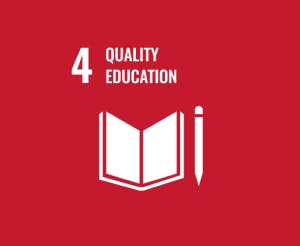
SDG 4: Quality Education
SDG 5: Gender Equality
- Violence against women and girls (Target 5.2)
- Child and forced marriage and female genital mutilation (Target 5.3)
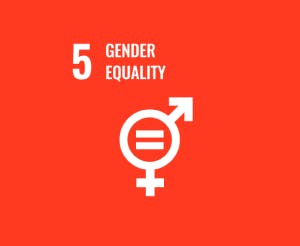
SDG 5: Gender Equality
SDG 8: Decent Work and Economic Growth
- Forced labour, modern slavery and human trafficking, including child labour and child soldiers (Target 8.7)
- Safe workplaces (Target 8.8)
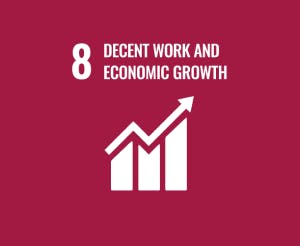
SDG 8: Decent Work and Economic Growth
SDG 10: Reduced Inequalities
- Safe migration (Target 10.7)
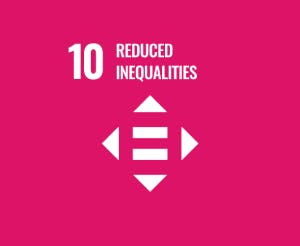
SDG 10: Reduced Inequalities
SDG 11: Sustainable Cities and Communities
- Safe housing (Target 11.1)
- Safe transport (Target 11.2)
- Safe public spaces (Target 11.7)
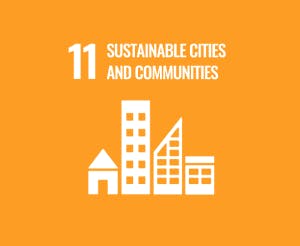
SDG 11: Sustainable Cities and Communities
SDG 16: Peace, Justice and Strong Institutions
- Violence against children (Target 16.2)
- Rule of law and access to justice (Target 16.3)
- Illicit financial and arms flows (Target 16.4)
- Bribery and corruption (Target 16.5)

SDG 16: Peace, Justice and Strong Institutions
- Alliance to Combat Anti-Asian Violence
